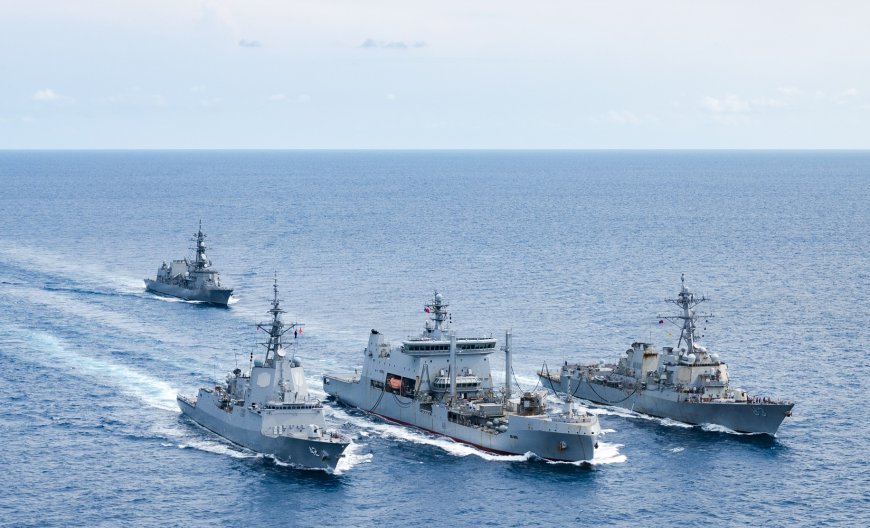Tensions rise as Chinese warships conduct exercises near Philippine water
Tensions flared in the south china sea this week as the philippine department of national defense confirmed the presence of at least five chinese warships conducting “Live fire exercises” near the disputed second Thomas Shoal, prompting a diplomatic protest from Manila.

Tensions flared in the south china sea this week as the philippine department of national defense confirmed the presence of at least five chinese warships conducting “Live fire exercises” near the disputed second Thomas Shoal, prompting a diplomatic protest from Manila.
According to defense secretary Renarto Mercado, Chinese naval vessels were spotted within 40 nautical miles of the BRP Sierra Madre, a grounded Philippine navy vessel that has served as a military outpost since 1999. “This is a clear act of provocation within our exclusive economic zone,” Mercado said during a press briefing on Tuesday. China's Ministry of Foreign Affairs responded swiftly, claiming the exercises were “routine and lawful,” conducted in “undisputed waters under Chinese sovereignty.” Spokesperson Lin Jian reiterated Beijing’s claim over what it calls the Nansha Islands, part of a broader territorial assertion that overlaps with claims by the Philippines, Vietnam, Malaysia, and Brunei.
The United States has expressed “grave concern” over the incident. In a statement, the U.S. State Department reaffirmed its commitment under the U.S.-Philippines Mutual Defense Treaty, warning that “any armed attack on Philippine public vessels would invoke mutual defense obligations.”
Regional analysts say this latest maneuver marks an escalation in an already volatile area. “China is testing the boundaries of Manila’s resolve, as well as Washington’s appetite to get involved,” said Dr. Ayesha Salazar, a security expert at the ASEAN Policy Forum.
In recent months, the Philippines has strengthened its maritime posture by upgrading bases under the Enhanced Defense Cooperation Agreement (EDCA) with the U.S., a move Beijing has criticized as “militarizing the region.”
No incidents of direct confrontation were reported during the exercises, but Philippine officials say the situation remains “under close watch.”
The South China Sea remains one of Asia’s most sensitive flashpoints, where sovereignty, trade routes, and strategic dominance intersect and where missteps carry global consequences.
What's Your Reaction?
 Like
0
Like
0
 Dislike
0
Dislike
0
 Love
0
Love
0
 Funny
0
Funny
0













